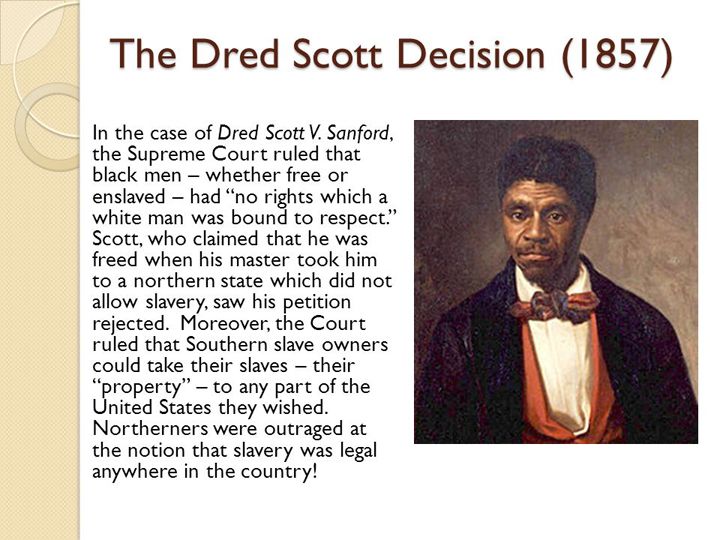The Supreme Court had no valid jurisdiction in this case since slavery was not a constitutional issue - until the 13A-15A, slavery was a states' issue - and Dred Scott had undergone due process in the Missouri Supreme Court.

The Supreme Court had no valid jurisdiction in this case since slavery was not a constitutional issue - until the 13A-15A, slavery was a states' issue - and Dred Scott had undergone due process in the Missouri Supreme Court.

Taney did not invent the concept of Substantive Due Process. It’s origins can go back to James Otis’ arguments in the Writs of Assistance Case in 1761 and to Justice Chase’s opinion in Calder v. Bull in 1798. However, Taney’s decision was the only example of it’s actual application to strike down a statute until the two cases of Chicago, Burlington & Quincy Railroad v. City of Chicago and Allgeyer v. Louisiana in 1897. And it is something of a stretch to call Dred Scott a Substantive Due Process case. The idea that slaves were property subject to ownership was not novel and a relatively widely recognized property right at the time. Dred Scott was more of a straight up application of Constitutional construction in the line of Marbury v. Madison, Gibbons v. Ogden or McCulloch v. Maryland.